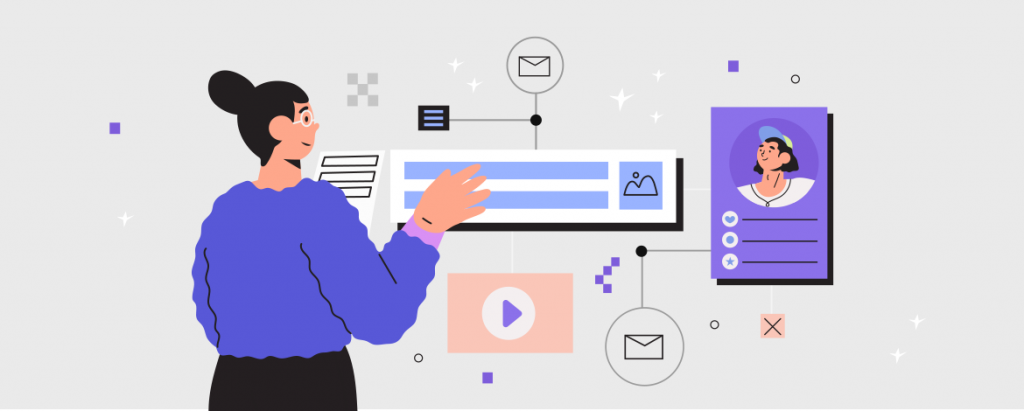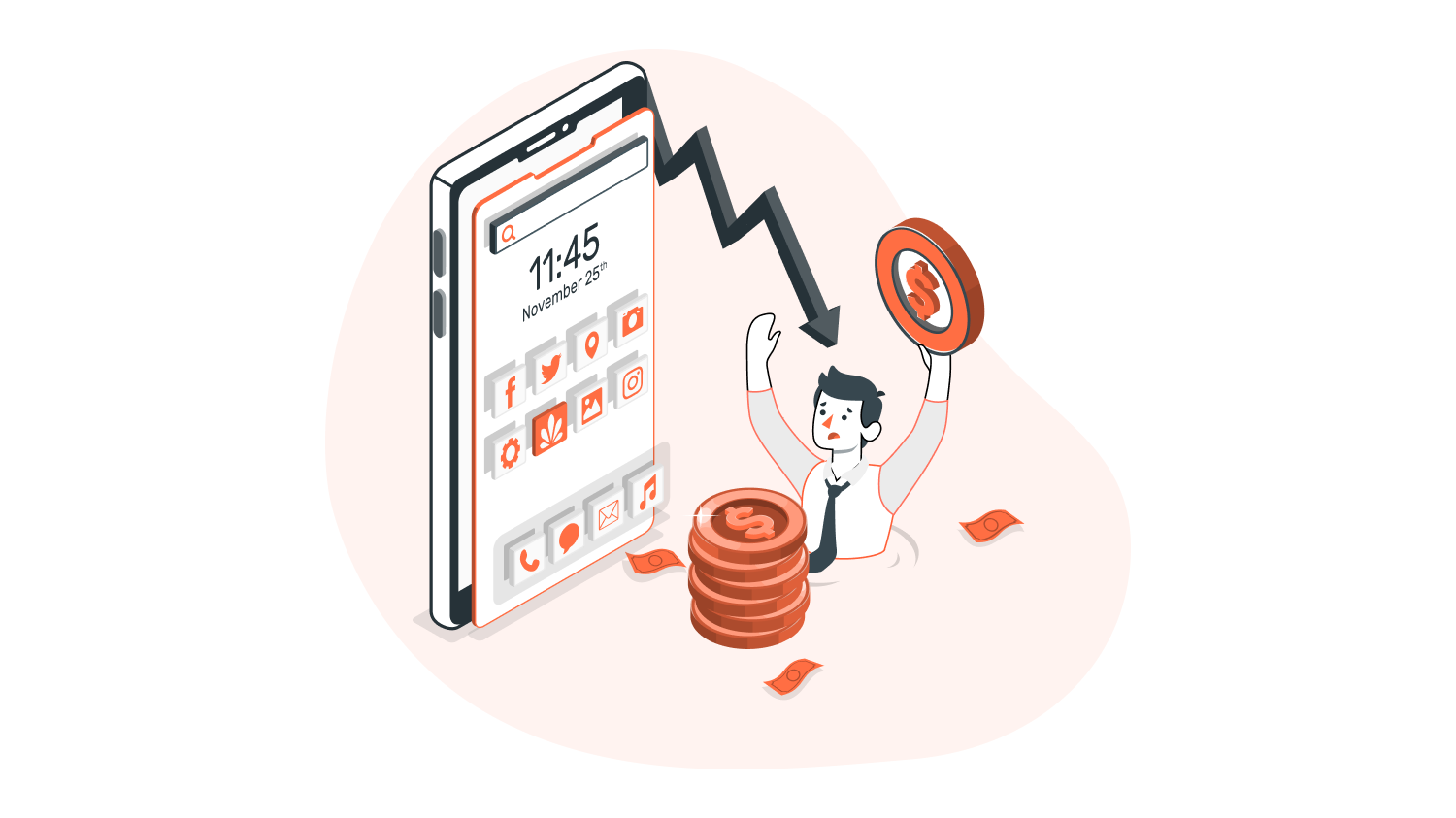This article explores the importance of personalization in mobile app design and development. It highlights the benefits of personalization for both users and businesses and provides insights into how personalization can be achieved in mobile app development.
In today’s digital age, people are constantly seeking personalized experiences. They want to be recognized as unique individuals with specific needs and preferences. Mobile app design and development have responded to this demand by integrating personalization features that enhance the user experience.
Personalization refers to the process of tailoring a user’s experience with an app to their individual needs and preferences. This can be achieved through various techniques, such as user data analysis, machine learning, and artificial intelligence. Personalization not only benefits users but also businesses by improving customer engagement, retention, and revenue.
In this article, we will explore the power of personalization in mobile app design and development. We will highlight the benefits of personalization for both users and businesses and provide insights into how personalization can be achieved in mobile app development.
Benefits of Personalization for Users:

Personalization can provide numerous benefits for users, including:
- Enhanced User Experience: Personalization can create an enjoyable and seamless user experience by reducing the effort users have to make to access the features they need. Users can easily find the content, services, and information that interests them and can receive personalized recommendations for relevant products or services, which enhances their overall experience with the app.
- Improved Engagement: Personalized experiences can increase user engagement and loyalty by providing tailored content and services that align with their preferences and interests. This encourages users to interact with the app more frequently, and they are more likely to stick with the app for a more extended period.
- Increased Productivity: Personalization can save time by anticipating users’ needs and preferences, and providing them with the right information or tools at the right time. This can lead to increased productivity and efficiency, as users can complete tasks quickly and with minimal effort.
- Higher Conversion Rates: Personalization can increase conversion rates by offering users personalized recommendations based on their preferences, past purchases, or behavior. This makes it easier for users to find and purchase products or services that meet their needs and can encourage them to buy more frequently.
- Better Customer Retention: Personalization can improve customer retention by building a strong relationship between users and the app. Personalized experiences that are tailored to the user’s preferences and needs can help users feel valued and appreciated, making them more likely to stay loyal to the app over time.
- Enhanced Customer Satisfaction: Personalization can increase customer satisfaction by providing a personalized experience that meets the user’s unique needs and preferences. This can create a positive impression of the app and can lead to increased customer loyalty and advocacy.
Overall, personalization can provide significant benefits for users by enhancing their experience, increasing engagement, improving productivity, increasing conversion rates, building customer loyalty, and improving customer satisfaction.
Benefits of Personalization for Businesses:

Personalization can provide numerous benefits for businesses, including:
- Increased Sales: Personalization can lead to increased sales by providing users with personalized recommendations that align with their interests and preferences. This can help businesses to promote products or services that are more relevant to the user, increasing the chances of a successful sale.
- Improved Customer Retention: Personalization can improve customer retention by building a strong relationship between the user and the app. By providing personalized experiences that meet the user’s unique needs and preferences, businesses can encourage users to stay loyal to the app over time, reducing churn rates and increasing customer lifetime value.
- Enhanced User Engagement: Personalized experiences can increase user engagement and loyalty by providing tailored content and services that align with their preferences and interests. This encourages users to interact with the app more frequently, leading to increased retention rates and a more engaged user base.
- Better Data Insights: Personalization can provide valuable data insights for businesses by tracking user behavior and preferences. This can help businesses to better understand their users and tailor their products and services to meet their needs, leading to improved user satisfaction and better business outcomes.
- Increased Brand Loyalty: Personalization can increase brand loyalty by providing a personalized experience that aligns with the user’s needs and preferences. This can create a positive impression of the brand and encourage users to become advocates, promoting the app to others and increasing the reach of the business.
- Improved Customer Satisfaction: Personalization can improve customer satisfaction by providing a personalized experience that meets the user’s unique needs and preferences. This can create a positive impression of the app and the brand, leading to increased customer loyalty and advocacy.
Overall, personalization can provide significant benefits for businesses by increasing sales, improving customer retention and engagement, providing valuable data insights, increasing brand loyalty, and improving customer satisfaction.
By investing in personalization, businesses can create a better user experience and build a stronger relationship with their users, leading to improved business outcomes over time.
How to Achieve Personalization in Mobile App Development:

To achieve personalization in mobile app development, businesses can follow these steps:
- Collect User Data: The first step towards achieving personalization is to collect user data. This can include information such as user demographics, behavior, preferences, and interests. This data can be collected through various methods such as surveys, in-app analytics, and user feedback.
- Analyze User Data: Once the user data is collected, it needs to be analyzed to identify patterns and insights. This can help businesses to understand the user’s needs, preferences, and behavior, which can be used to personalize the user experience.
- Create User Personas: Based on user data analysis, businesses can create user personas that represent different types of users. This can help to define the target audience and personalize the app experience for each user persona.
- Customize App Content: Personalization can be achieved by customizing app content based on the user’s interests, preferences, and behavior. This can include personalized recommendations, personalized content, and personalized notifications.
- Use Machine Learning: Machine learning algorithms can be used to personalize the app experience based on user behavior and preferences. By analyzing user data in real time, machine learning algorithms can provide personalized recommendations and content that are tailored to the user’s unique needs.
- Offer Personalized In-App Communication: In-app communication can also be personalized to provide a better user experience. This can include personalized messages, personalized offers, and personalized support.
- Implement Personalized Push Notifications: Push notifications can be personalized to provide relevant and timely notifications to users. By analyzing user data and behavior, push notifications can be personalized to provide personalized offers, reminders, and updates.
- Provide Personalized Customer Support: Customer support can also be personalized to provide a better user experience. This can include personalized chatbots, personalized support agents, and personalized support channels.
Overall, achieving personalization in mobile app development requires collecting user data, and analyzing it to identify patterns and insights.
Creating user personas, customizing app content, using machine learning, offering personalized in-app communication, implementing personalized push notifications, and providing personalized customer support.
By following these steps, businesses can provide a better user experience and improve user engagement and retention.
Conclusion:
Personalization has become a crucial aspect of mobile app design and development. It provides a unique and tailored experience to each user, improving engagement, retention, and revenue.
Personalization is achieved through various techniques such as user data analysis, machine learning, and artificial intelligence. By implementing personalization strategies, businesses can create an app that is customized to each user, leading to higher levels of customer satisfaction and loyalty.



















